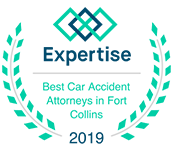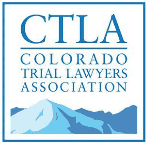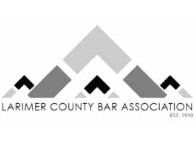Request a Free Consultation | No Upfront FeesSe Habla Español
970-225-2190 |
1-800-664-3151
Recent Blog Posts
Why Does Larimer County Rank High for State Traffic Deaths?
 If you live or drive in Larimer County, Colorado, it may feel like deadly crashes happen all the time. The reality is auto accidents are frequent in this part of the state, mainly because of the dangerous roadways. In fact, Larimer County ranks high for traffic deaths compared to many other parts of Colorado.
If you live or drive in Larimer County, Colorado, it may feel like deadly crashes happen all the time. The reality is auto accidents are frequent in this part of the state, mainly because of the dangerous roadways. In fact, Larimer County ranks high for traffic deaths compared to many other parts of Colorado.
For example, in October 2025, a head-on collision on Highway 287 killed two drivers. A month later, a 20-year-old woman from Evans was killed after her vehicle crashed into a canal in Larimer County.
A Larimer County, CO personal injury lawyer can help explain why these crashes happen and what they may mean if you or a loved one is injured.
Who Do I Sue When Faulty Brakes on a Semi Caused My Accident in Colorado?
 As of 2025, Colorado law allows injured drivers to pursue compensation from more than one party when a semi-truck crash is caused by mechanical failure. Many people are surprised to learn that liability for an accident could be shared by multiple parties, depending on what caused it.
As of 2025, Colorado law allows injured drivers to pursue compensation from more than one party when a semi-truck crash is caused by mechanical failure. Many people are surprised to learn that liability for an accident could be shared by multiple parties, depending on what caused it.
Determining who is legally responsible requires a close look at how the brakes failed and who had a duty to prevent that failure. Our Fort Collins, CO truck accident lawyer can help identify the correct parties and protect your right to recover damages.
Is a Truck Driver Responsible for an Accident Caused by Brake Failure?
In many brake-related crashes, the truck driver is not the main cause. Drivers are required to inspect their vehicles, but they are rarely responsible for actual truck maintenance and repairs.
Who Gets the Money From a Wrongful Death Settlement in Colorado?
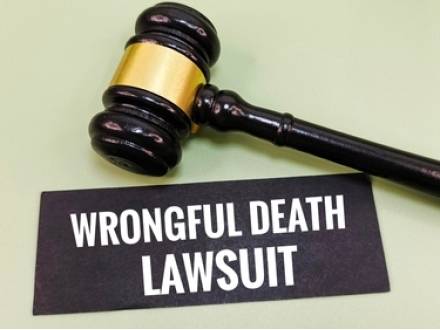 Along with grief, families face practical questions about compensation when they lose a loved one due to someone else’s negligence. In Colorado, decisions about who receives the money from a wrongful death claim depend on family relationships and when the claim is filed. Courts follow strict statutory rules, which is why many families choose to speak with a Larimer County, CO wrongful death lawyer early in the process.
Along with grief, families face practical questions about compensation when they lose a loved one due to someone else’s negligence. In Colorado, decisions about who receives the money from a wrongful death claim depend on family relationships and when the claim is filed. Courts follow strict statutory rules, which is why many families choose to speak with a Larimer County, CO wrongful death lawyer early in the process.
What Is a Wrongful Death Claim in Colorado?
A wrongful death claim is a civil case brought when a person dies because of another party’s wrongful act, neglect, or failure to act. These cases are separate from any criminal charges. The focus is on financial responsibility and the losses suffered by surviving family members.
Colorado’s wrongful death law, under C.R.S. § 13-21-201, limits who may bring a claim and who may benefit from a settlement or court award. The law is designed to protect close family members, not distant relatives or unrelated parties.
What Happens If a Car Accident Involves a Rental Vehicle?
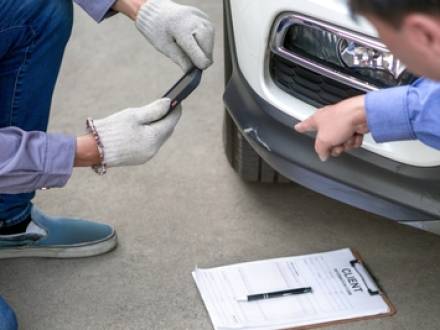 Since car accident claims involve insurance companies, throwing a rental car into the mix can make it more complex. Questions about fault and whose policy pays for damages often come up right away. If you were hurt in a crash involving a rental car in Colorado, whether you were driving the rental or not, speaking with a Fort Collins, CO car accident lawyer can help. At Hoggatt Law Office, P.C., we will investigate the accident, help you understand the laws, and ensure you identify all recoverable damages.
Since car accident claims involve insurance companies, throwing a rental car into the mix can make it more complex. Questions about fault and whose policy pays for damages often come up right away. If you were hurt in a crash involving a rental car in Colorado, whether you were driving the rental or not, speaking with a Fort Collins, CO car accident lawyer can help. At Hoggatt Law Office, P.C., we will investigate the accident, help you understand the laws, and ensure you identify all recoverable damages.
What if the At-Fault Driver Was Driving a Rental Car?
If the other driver caused the accident and was driving a rental car, the claim often starts with that driver’s personal auto insurance. In most cases, a driver’s own policy follows them even when they are in a rental vehicle. That means their liability coverage may pay for injuries and property damage they caused.
Common Mistakes That Can Delay Your Workers’ Comp Claim
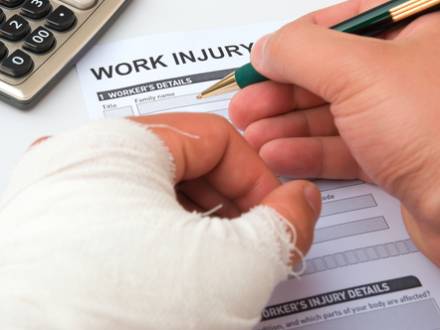 Workers’ compensation is designed to give you fast access to benefits when you suffer an injury at work. These benefits pay for medical treatment and replace part of your lost wages. However, even small errors can slow down your claim and delay your benefits. Our Larimer County, CO workers’ compensation lawyer can help you access the money you need to recover without worry.
Workers’ compensation is designed to give you fast access to benefits when you suffer an injury at work. These benefits pay for medical treatment and replace part of your lost wages. However, even small errors can slow down your claim and delay your benefits. Our Larimer County, CO workers’ compensation lawyer can help you access the money you need to recover without worry.
Reporting the Injury Too Late Can Hurt Your Claim
One of the most common reasons for delays in resolving workers’ comp claims is waiting too long to report the injury. As of 2025, you have 10 days to report your injury in writing to your employer. It used to be four days until the law changed in 2022. Written notice gives you proof that you reported your injury on time.
If you wait, the insurance company might question when or how the injury happened. They could also delay reviewing your claim while they look into the timing. Even if your pain seems mild, report it right away. Telling your employer early shows that you are following the law and helps create a record of what happened.
How Do Helmet Laws Affect Your Colorado Motorcycle Accident Claim?
 Colorado is one of the most beautiful states to travel by motorcycle. The open highways and mountain passes attract riders from across the country. However, a crash can quickly turn your life upside down. The state’s helmet laws can also affect how your accident claim is handled. With help from our knowledgeable Fort Collins, CO motorcycle accident lawyer, you have a better chance at filing a claim that represents what you are owed.
Colorado is one of the most beautiful states to travel by motorcycle. The open highways and mountain passes attract riders from across the country. However, a crash can quickly turn your life upside down. The state’s helmet laws can also affect how your accident claim is handled. With help from our knowledgeable Fort Collins, CO motorcycle accident lawyer, you have a better chance at filing a claim that represents what you are owed.
What Are Colorado’s Current Motorcycle Helmet Laws?
Colorado law gives motorcyclists some freedom when it comes to helmet use. Under C.R.S. § 42-4-1502, helmets are required only for people under 18 years old or those who have a learner’s permit. If you are 18 or older, wearing a helmet is your choice, but recommended.
How Does Driver Fatigue Cause Serious Truck Accidents in Colorado?
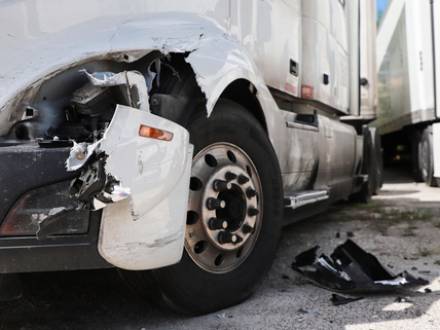 Driver fatigue is a common cause of truck accidents in Colorado. When truck drivers spend too many hours behind the wheel, they lose alertness and their reaction time slows. The demands of the trucking industry often make driver fatigue more likely. These dangerous conditions can lead to serious or even fatal crashes. If you have been injured in a truck accident, an experienced Larimer County, CO truck accident lawyer can help you hold the driver and trucking company responsible.
Driver fatigue is a common cause of truck accidents in Colorado. When truck drivers spend too many hours behind the wheel, they lose alertness and their reaction time slows. The demands of the trucking industry often make driver fatigue more likely. These dangerous conditions can lead to serious or even fatal crashes. If you have been injured in a truck accident, an experienced Larimer County, CO truck accident lawyer can help you hold the driver and trucking company responsible.
Why Are Truck Drivers So Susceptible to Fatigue?
Federal law under 49 C.F.R. § 395 limits how many hours commercial drivers can work in a day or week. These rules also require rest breaks to prevent fatigue. However, some drivers or companies ignore these limits to make faster deliveries.
How Do You Prove an Insurance Company Acted in Bad Faith?
 We rely on insurance companies to pay out when an unexpected financial situation happens. For example, if you suffered injuries in a car accident or on someone’s property due to their negligence, you need fast and fair compensation. Unfortunately, too often these companies will prioritize their bottom lines. To prove bad faith, you must show that the insurer’s actions were unreasonable and that you suffered financial harm as a result. If you believe your insurer is treating you unfairly, a Fort Collins, CO bad faith litigation lawyer can help you understand your options.
We rely on insurance companies to pay out when an unexpected financial situation happens. For example, if you suffered injuries in a car accident or on someone’s property due to their negligence, you need fast and fair compensation. Unfortunately, too often these companies will prioritize their bottom lines. To prove bad faith, you must show that the insurer’s actions were unreasonable and that you suffered financial harm as a result. If you believe your insurer is treating you unfairly, a Fort Collins, CO bad faith litigation lawyer can help you understand your options.
What Counts as Bad Faith in Colorado?
Every insurance policy includes an implied duty of good faith and fair dealing. Under C.R.S. § 10-3-1115, an insurer may not unreasonably delay or deny payment for a valid claim. The law applies to all types of insurance, including auto, homeowners, and health coverage.
Does the Criminal Conviction of a Drunk Driver Impact Your Civil Claim?
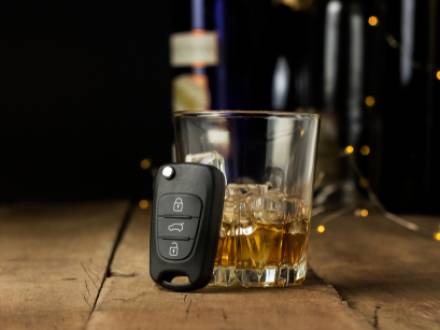 Last month, a tragedy made headlines in Larimer County when a suspected drunk driver went the wrong way on U.S. Highway 287 and caused a fiery head-on collision that killed two people. Sadly, crashes like this happen far too often in Colorado, leaving victims and families facing medical bills, emotional trauma, and life-changing loss.
Last month, a tragedy made headlines in Larimer County when a suspected drunk driver went the wrong way on U.S. Highway 287 and caused a fiery head-on collision that killed two people. Sadly, crashes like this happen far too often in Colorado, leaving victims and families facing medical bills, emotional trauma, and life-changing loss.
When a drunk driver causes harm, a criminal case may bring justice through punishment, but it does not automatically cover your financial recovery. If you were injured in a crash caused by an impaired driver, an experienced Larimer County, CO car accident lawyer can help you navigate the civil side of your case to pursue monetary compensation.
What Is the Difference Between a Criminal and Civil Case for a Drunk Driving Accident?
In Colorado, a criminal case is handled by the state. Prosecutors must prove beyond a reasonable doubt that the driver broke the law under C.R.S. § 42-4-1301, which addresses the offense of driving under the influence. A conviction can lead to jail time, fines, license suspension, and probation. The goals in these cases are punishment and deterrence, but they do not provide any financial compensation to the victims.
Can You Still Get Compensation if the Driver Left the Scene in Colorado?
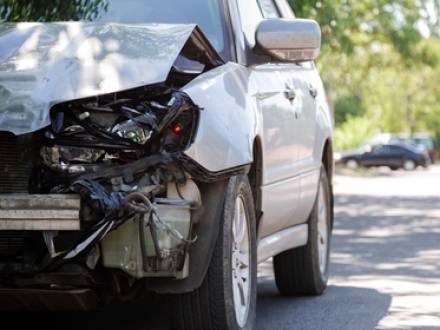 Hit-and-run accidents leave victims with questions and damages. One of the most pressing concerns is how you will pay for your financial losses. Even if the person responsible disappears, you still have legal options. Colorado law provides ways for you to recover compensation through sources other than the at-fault driver. An experienced Fort Collins, CO car accident lawyer can help. At Hoggatt Law Office, P.C., we will guide you through the claims process and help you prepare for a lawsuit if necessary.
Hit-and-run accidents leave victims with questions and damages. One of the most pressing concerns is how you will pay for your financial losses. Even if the person responsible disappears, you still have legal options. Colorado law provides ways for you to recover compensation through sources other than the at-fault driver. An experienced Fort Collins, CO car accident lawyer can help. At Hoggatt Law Office, P.C., we will guide you through the claims process and help you prepare for a lawsuit if necessary.
What Should You Do Right After a Hit-and-Run Accident in Colorado?
Colorado law, under C.R.S. § 42-4-1601, requires drivers involved in an accident to stop, exchange information, and help anyone who is hurt. When a driver leaves, they break the law, and that can strengthen your case for compensation. What you do in the first few minutes and days after the crash can make a big difference in your case.

970-225-2190 | 1-800-664-3151
1403 W. 29th St.,
Loveland, Colorado 80538
Greeley:
3835 W. 10th Street, Unit 100,
Greeley, Colorado 80634|
970-460-2220
Longmont:
2204 18th Ave, Suite 123,
Longmont, Colorado 80501|
720-575-0509
Boulder:
4450 Arapahoe Avenue, Suite 100,
Boulder, Colorado 80303|
303-997-2018
Ft. Collins:
123 North College Ave., Suite 160,
Fort Collins, CO 80524|
970-225-2190
Cheyenne:
109 E. 17th St., Suite #6148,
Cheyenne, WY 82001|
307-227-4051 (By Appointment Only)




